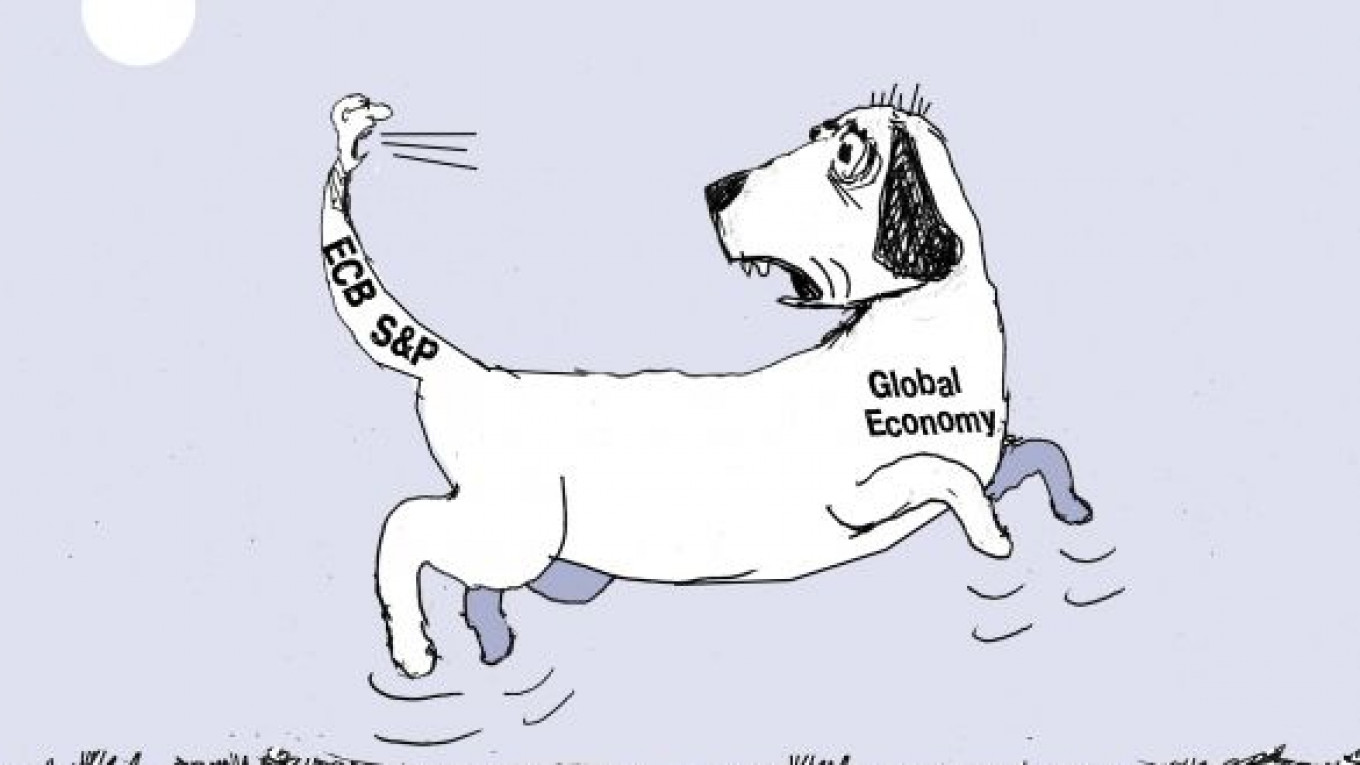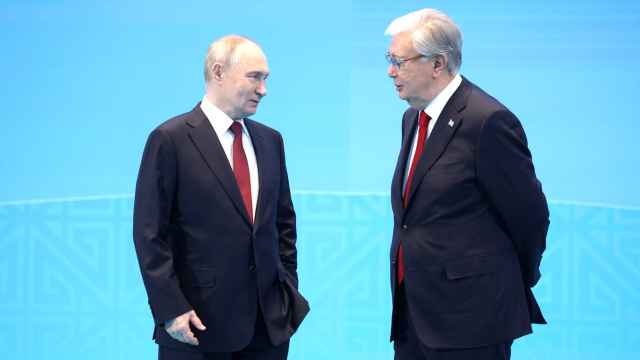The Great Recession of 2008 has morphed into the North Atlantic Recession. It is mainly Europe and the United States, not the major emerging markets, that have become mired in slow growth and high unemployment. And it is Europe and the United States that are marching, alone and together, to the denouement of a grand debacle. A busted bubble led to a massive Keynesian stimulus that averted a much deeper recession, but it also fueled substantial budget deficits. The response — massive spending cuts — ensures that unacceptably high levels of unemployment, a vast waste of resources and an oversupply of suffering will continue, possibly for years.
The European Union has finally committed itself to helping its financially distressed members. It had no choice. With financial turmoil threatening to spread from small countries like Greece and Ireland to large ones like Italy and Spain, the euro’s very survival was in increasing jeopardy. Europe’s leaders recognized that distressed countries’ debts would become unmanageable unless their economies could grow, and that growth could not be achieved without assistance.
But even as Europe’s leaders promised that help was on the way, they doubled down on the belief that non-crisis countries must cut spending. The resulting austerity will hinder Europe’s growth and thus that of its most distressed economies. After all, nothing would help Greece more than robust growth among its trading partners.
The discussions before the crisis illustrated how little had been done to repair economic fundamentals. The vehement opposition of the European Central Bank, or ECB, to what is essential to all capitalist economies — the restructuring of failed or insolvent entities’ debt — is evidence of the continuing fragility of the Western banking system.
The ECB argued that taxpayers should pick up the entire tab for Greece’s bad sovereign debt for fear that any private-sector involvement would trigger a “credit event,” which would force large payouts on credit-default swaps, possibly fueling further financial turmoil. But if that is a real fear for the ECB, surely it should have demanded that the banks have more capital.
Likewise, the ECB should have barred banks from the risky market for credit-default swaps, where they are held hostage to ratings agencies’ decisions about what constitutes a “credit event.” Indeed, one positive achievement by European leaders at the recent Brussels summit was to begin the process of reining in both the ECB and the power of the U.S. ratings agencies.
The most curious aspect of the ECB’s position was its threat not to accept restructured government bonds as collateral if the ratings agencies decided that the restructuring should be classified as a credit event. The whole point of restructuring was to discharge debt and make the remainder more manageable. If the bonds were acceptable as collateral before the restructuring, surely they were safer after the restructuring and thus equally acceptable.
This episode serves as a reminder that central banks are political institutions with a political agenda and that independent central banks tend to be captured — at least “cognitively”— by the banks that they are supposed to regulate.
The situation is not any better on the other side of the Atlantic. There, the extreme right threatened to shut down the U.S. government, confirming what game theory suggests: When those who are irrationally committed to destruction don’t get their way and confront rational individuals, the irrational side often prevails.
As a result, U.S. President Barack Obama acquiesced to an unbalanced debt-reduction strategy with no tax increases — not even for the millionaires who have done so well during the past two decades and not even by eliminating tax giveaways to oil companies, which undermine economic efficiency and contribute to environmental degradation.
With housing prices continuing to fall, economic growth faltering and unemployment remaining stubbornly high (one in six Americans who would like a full-time job still cannot get one), more stimulus, not austerity, is needed. Stimulus is needed for the sake of balancing the budget as well. The single most important driver of deficit growth is weak tax revenues, owing to poor economic performance, and the single best remedy would be to put Americans back to work. The recent debt deal is a move in the wrong direction.
There has been much concern about financial contagion between Europe and the United States. After all, financial mismanagement in the United States played an important role in triggering Europe’s problems. Financial turmoil in Europe would not be good for the United States — especially given the fragility of the U.S. banking system and the continuing role it plays in nontransparent credit-default swaps.
But the real problem stems from another form of contagion: Bad ideas move easily across borders, and misguided economic notions on both sides of the Atlantic have been reinforcing each other. The same will be true of the stagnation that those policies bring.
Joseph Stiglitz is a professor at Columbia University, a Nobel laureate in economics and the author of “Freefall: Free Markets and the Sinking of the Global Economy.” © Project Syndicate
A Message from The Moscow Times:
Dear readers,
We are facing unprecedented challenges. Russia's Prosecutor General's Office has designated The Moscow Times as an "undesirable" organization, criminalizing our work and putting our staff at risk of prosecution. This follows our earlier unjust labeling as a "foreign agent."
These actions are direct attempts to silence independent journalism in Russia. The authorities claim our work "discredits the decisions of the Russian leadership." We see things differently: we strive to provide accurate, unbiased reporting on Russia.
We, the journalists of The Moscow Times, refuse to be silenced. But to continue our work, we need your help.
Your support, no matter how small, makes a world of difference. If you can, please support us monthly starting from just $2. It's quick to set up, and every contribution makes a significant impact.
By supporting The Moscow Times, you're defending open, independent journalism in the face of repression. Thank you for standing with us.
Remind me later.






